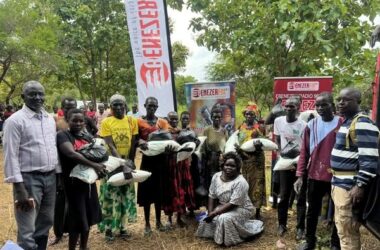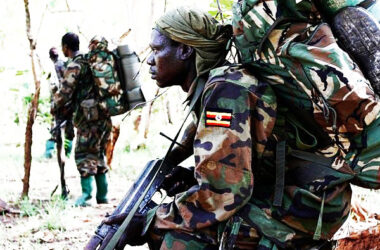By Alan Clement
Internally displaced persons (IDPs) in Kajo-Keji County are grappling with dire health and food shortages, compounded by limited humanitarian assistance and a limited government support.
During an exclusive interview, Commissioner Mule described the conditions in several IDP camps as “not all that good,” citing visible signs of malnutrition and hunger among children and adults.
“You find children, some of them appear malnourished. All the people appear hungry and so forth,” he told this outlet.
He revealed that while two camps: Kimu and Sokare share health services from nearby centres, four other IDP settlements remain completely without medical facilities.
Pregnant women, children, and the elderly face extreme difficulty in accessing healthcare, with some forced to walk for hours to reach the nearest clinics.
“Reimbursing someone in case of emergency is very difficult,” he explained. “Even distance is very difficult. Sometimes when a patient’s condition worsens, they must be taken to Kajo-Keji Hospital, but there is a big problem of ambulance delays.”
He credited international and national organizations, including ICRC, UNHCR-EA, and NRRC, with stepping in to fill the gap. However, the support remains insufficient. UNHCR-EA, for instance, was able to assist only 900 out of 2,932 families in need.
In addition to food and health, the commissioner noted that sanitation and clean water access remains a challenge. He confirmed that ICRC has intervened to flush waste and repair water systems in some areas, reportedly rehabilitating more than 30 boreholes.
He said a team from the Great Lakes region recently visited the camps to assess the situation, but “they have not given any promise.”
He added, “They were sent from the headquarters to find out the conditions, and they will submit their report in one week.”
Despite the difficult circumstances, there is cautious optimism regarding the security situation. The Commissioner reported that relative calm has returned to parts of the county, allowing some IDPs to begin returning to their original homes.
“I announced to them to begin moving back to their previous homes because the security is now relatively calm,” he said.
“Some of them have started going back. Others are still cleaning and smearing their homes,” he added.
However, the broader political issues, particularly the unresolved border dispute that led to the displacement, remain unaddressed.
“The border issue is the prerogative of the two governments to settle it,” Mule said adding, “The Great Lakes team did not mention anything about the border issue.”
As Kajo-Keji’s displaced communities await further aid and clarity on their future, the humanitarian crisis continues to demand urgent attention.




